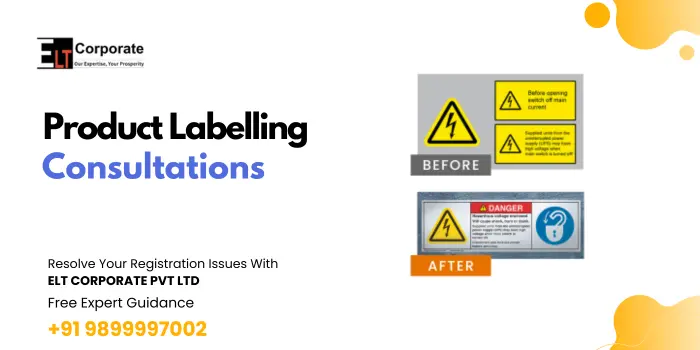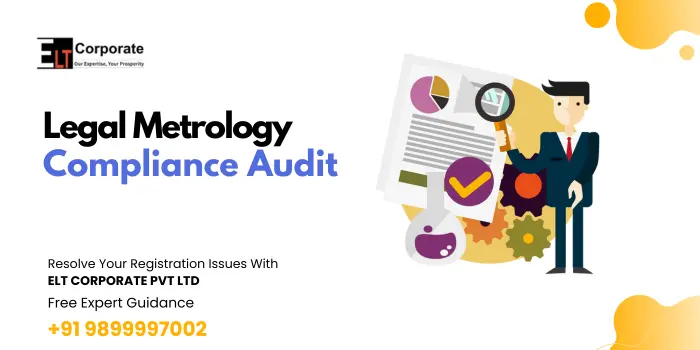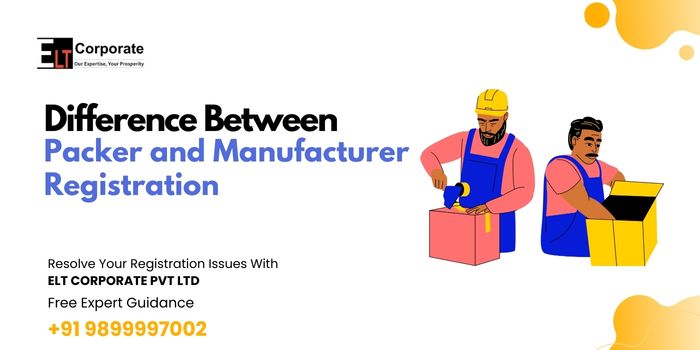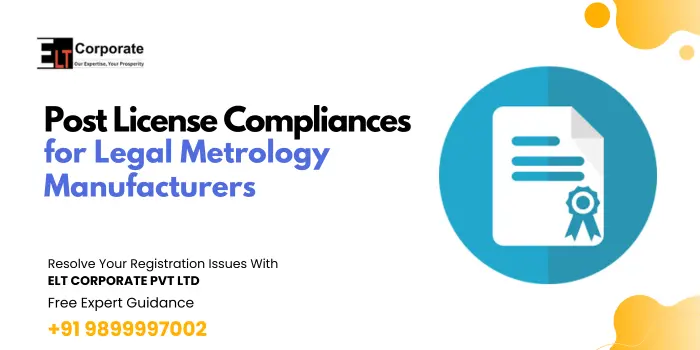How Product Labelling Consultations Smooth Customs Clearance for Importers?
When businesses import goods into India, one of the most common hurdles they face is customs clearance. Many shipments get delayed, held, or even penalised because the products do not have the correct labelling as required by Indian law. This is where product labelling consultations become highly useful. A labelling consultation ensures that your imported goods comply with Legal Metrology (Packaged Commodities) Rules, 2011 and other applicable laws. With proper product labelling, importers can avoid customs delays, penalties, and rejections, while ensuring that their products quickly reach the market. What is Product Labelling in the Context of Imports? Product labelling in imports means printing or affixing all mandatory details on the packaging of imported goods, as per Indian regulations. These labels provide critical information for: It usually includes product details, manufacturer information, country of origin, importer details, price, and safety instructions. Why is Product Labelling Important for Customs Clearance? Product labelling is crucial because customs authorities use it to verify compliance. If labels are missing or incorrect, customs may: Proper labelling ensures smooth clearance without unnecessary delays. What Information Must be Included on Product Labels for Imports in India? As per the Legal Metrology (Packaged Commodities) Rules, 2011, an imported product must display: S.No. Mandatory Label Information Purpose 1. Name & Address of Importer Identifies the responsible party in India 2. Generic Name of the Product Clear identification 3. Net Quantity (weight/volume/number) Ensures transparency 4. Manufacturing/Import month & year Helps track product validity 5. MRP (Maximum Retail Price) including all taxes Protects consumer interest 6. Country of Origin Required under customs & consumer law 7. Manufacturing details Accountability of the foreign producer 8. Any specific Statutory Warnings Safety & compliance How Does Incorrect or Missing Labelling Delay Customs Clearance? If imported goods have: Customs may: This leads to higher costs, storage charges, and delayed entry into the market. What Role Do Product Labelling Consultations Play for Importers? Product labelling consultations help importers by: In short, consultation ensures that labels meet all Indian legal standards. How Do Legal Metrology (Packaged Commodities) Rules Impact Import Labelling? The Legal Metrology (Packaged Commodities) Rules, 2011 set the rules for labelling imported goods. For example: Thus, legal metrology rules are the backbone of import labelling requirements. How Does Product Labelling Consultation Reduce the Risk of Customs Penalties? Customs can impose hefty penalties if labels do not comply. Some examples: By using labelling consultation services, importers: What Are the Benefits of Taking Expert Labelling Consultation Before Import? Expert labelling consultations provide: Can Proper Labelling Speed Up Market Entry for Imported Goods? Yes, proper product labelling directly accelerates market entry. When goods clear customs without delays: Conclusion Product labelling is not just a formality but a mandatory compliance requirement that directly impacts how smoothly goods clear customs in India. Any mistake, omission, or non-compliance in labels can lead to delays, penalties, or even rejection of consignments, which can cause major losses for importers. By taking professional product labelling consultations, businesses can ensure that every detail on their packaging meets the Legal Metrology (Packaged Commodities) Rules, 2011 and customs expectations. This not only avoids unnecessary hurdles but also helps importers achieve faster clearance, reduced risks, and quicker entry into the Indian market.










